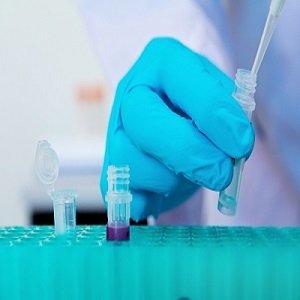
Singapore develops liquid biopsy
Singapore: Researchers from Institute of Bioengineering and Nanotechnology (IBN) of A*STAR have developed liquid biopsy to detect colorectal cancer.
Professor Jackie Y Ying, executive director, IBN said, "IBN is interested in developing medical technologies that can make a difference to healthcare. We are excited about our liquid biopsy approach, which could make it easier for doctors to check and administer the appropriate drug treatment for cancer patients. Our technologies have been validated by Fortis Surgical Hospital and have been successfully licensed for clinical applications."
Doctors currently use genetic testing on tissue to determine the treatment and survival outcome of colorectal cancer patients. The standard approach is to test biopsies or resected tissue for genetic mutations (genotyping). This involves the initial removal of a piece of tissue from the affected part of the patient's body. More tissue samples would need to be removed if the cancer has spread to other parts of the body. Tissue biopsy is a surgical procedure, which may be associated with pain and discomfort.
IBN's liquid biopsy, in contrast, offers an alternative, less invasive method to analyze cancer cells through blood testing.
Liquid biospy is based on the technology to capture circulating tumor cells, the cells that detach from a primary tumor and travel in the bloodstream to other locations, leading to metastasis or the spread of tumor in the body. These cells are a valuable early indicator of cancer metastasis, but are extremely rare compared to the large number of blood cells in the body.
IBN has fabricated a silicon microsieve to rapidly capture the circulating tumor cells from blood. Measuring 7.5 mm in diameter and with pores finer than a strand of hair, the microsieve utilizes a densely packed array of 90,000 pores to separate tumor cells from a blood sample within five minutes. Cancer cells are generally larger and stiffer, so the microsieve has been designed to trap the cancer cells, while allowing normal blood cells to pass through it.
Another technology utlized to develop liquid biospy is non-invasive genetic test. Colorectal cancer is known to have two key mutated genes, KRAS and BRAF. Doctors use tissue biopsy to check for the presence of these gene mutations in order to determine the most appropriate treatment. IBN has developed ultrasensitive molecular assays to identify matching gene mutations using the captured circulating tumor cells from the microsieve.
Dr Min-Han Tan, team leader and principal research scientist, IBN said, "As an oncologist and researcher, I believe care for our cancer patients can be improved through real-world innovation. Our work shows matching genetic mutations in the tumor tissue and corresponding circulating tumor cells of patients with colorectal cancer. This opens up an avenue for liquid biopsies, or the testing of cancer cells through blood, which we hope can reduce the need for invasive biopsies."




